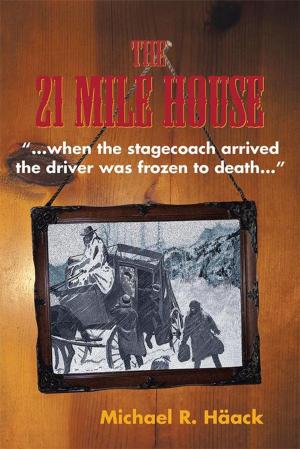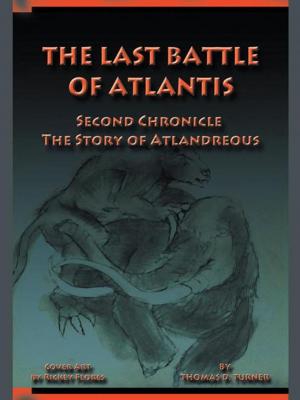| Author: | George M. Hahn | ISBN: | 9781468566468 |
| Publisher: | AuthorHouse | Publication: | August 1, 2011 |
| Imprint: | AuthorHouse | Language: | English |
| Author: | George M. Hahn |
| ISBN: | 9781468566468 |
| Publisher: | AuthorHouse |
| Publication: | August 1, 2011 |
| Imprint: | AuthorHouse |
| Language: | English |
It is 1939. The Nazi invasion of Poland has started World War II. Three ordinary, decent, young Germans join the elite Nazi force, the SS. Johann Helmuth. a Bavarian farmer's son, does so primarily to please his authoritarian, anti-semitic father, but also out of a vague sense of patriotism and a need to belong to a larger group. Herbert Winkler's father runs a small automobile repair shop in a village in the mountains of the former Austria. The son is a confirmed Nazi, willing to sacrifice his life for the Thousand Year Reich and its glorious Fuhrer. The third, Werner Kohler, comes from a sophisticated and very wealthy Berlin family. He is neither an ideologue, nor particularly patriotic, but bored, looking for excitement. The three become friends during the rigorous and demanding SS training that transformed ordinary citizens into members of what became arguably the most potent fighting force in all history. After the German invasion of Russia, they are sent to the Eastern front, Johann and Werner in a Waffen-SS division, Herbert in a penal unit. In Russia, they experience the monstrosity of modern warfare and the bestiality of the Nazi terror that is unleashed against the local population and particularly against the Jews. The three are not only witnesses to horror but participants: Johann unwillingly, Werner with detachment, and Herbert enthusiastically. Johann and Werner remember Herbert as a man who during training rescued a puppy at considerable danger to his life, but now countenances rape of women and killing of children. They cannot understand their former friend's transformation. During the drive on Berlin by the Soviet juggernaut, Werner and Herbert are killed, but Johann, although wounded, survives and returns to Germany. After the end of the European war he is arrested by the Allied Military Government, tried and imprisoned for war crimes, but released when two Jewish women testify that he helped them escape from a Polish Ghetto. He returns to his native Bavaria, marries Werner's sister and enters medical school. His feelings of guilt about his own war-time action depress him severely and this depression is accentuated when he observes his fellow citizens' crass materialism and their unwillingness or inability to deal with their recent past. What shocks him most is the ready acceptance and integration into society of some of the worst criminals the world has ever produced. His depression deepens to the point where he cannot continue his studies; his marriage disintegrates and he permanently leaves his homeland.
It is 1939. The Nazi invasion of Poland has started World War II. Three ordinary, decent, young Germans join the elite Nazi force, the SS. Johann Helmuth. a Bavarian farmer's son, does so primarily to please his authoritarian, anti-semitic father, but also out of a vague sense of patriotism and a need to belong to a larger group. Herbert Winkler's father runs a small automobile repair shop in a village in the mountains of the former Austria. The son is a confirmed Nazi, willing to sacrifice his life for the Thousand Year Reich and its glorious Fuhrer. The third, Werner Kohler, comes from a sophisticated and very wealthy Berlin family. He is neither an ideologue, nor particularly patriotic, but bored, looking for excitement. The three become friends during the rigorous and demanding SS training that transformed ordinary citizens into members of what became arguably the most potent fighting force in all history. After the German invasion of Russia, they are sent to the Eastern front, Johann and Werner in a Waffen-SS division, Herbert in a penal unit. In Russia, they experience the monstrosity of modern warfare and the bestiality of the Nazi terror that is unleashed against the local population and particularly against the Jews. The three are not only witnesses to horror but participants: Johann unwillingly, Werner with detachment, and Herbert enthusiastically. Johann and Werner remember Herbert as a man who during training rescued a puppy at considerable danger to his life, but now countenances rape of women and killing of children. They cannot understand their former friend's transformation. During the drive on Berlin by the Soviet juggernaut, Werner and Herbert are killed, but Johann, although wounded, survives and returns to Germany. After the end of the European war he is arrested by the Allied Military Government, tried and imprisoned for war crimes, but released when two Jewish women testify that he helped them escape from a Polish Ghetto. He returns to his native Bavaria, marries Werner's sister and enters medical school. His feelings of guilt about his own war-time action depress him severely and this depression is accentuated when he observes his fellow citizens' crass materialism and their unwillingness or inability to deal with their recent past. What shocks him most is the ready acceptance and integration into society of some of the worst criminals the world has ever produced. His depression deepens to the point where he cannot continue his studies; his marriage disintegrates and he permanently leaves his homeland.















